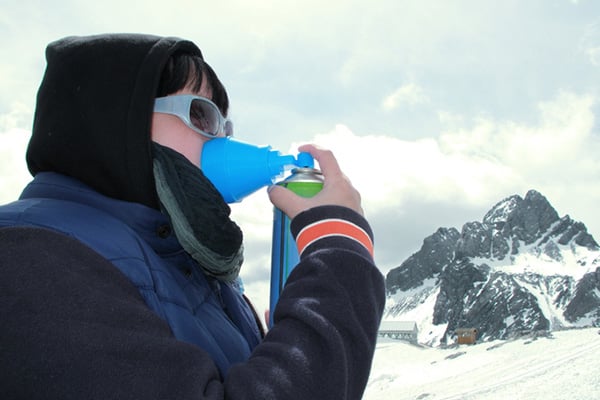Managing Altitude Sickness: Advice from an Expert
Managing Altitude Sickness: Advice from an Expert
Dec. 15, 2021
'Tis the season for winter trips - and for many (especially in this pandemic era), that means heading outdoors to the mountains. EMRA*Cast host Dr. Ranjita Raghavan brings you top-notch advice from a top-notch wilderness medicine expert, Dr. Linda Keyes. Make sure you know how to recognize and manage altitude sickness this season.
Host
Ranjita Raghavan, MD
The Mount Sinai Hospital Emergency Medicine Residency, PGY-4
Guest
Linda Keyes, MD, FACEP, FAWM
Wilderness Medical Society Past-President
Attending physician, University of Colorado
Twitter: @LindaKeyesMD
'Tis the season for winter trips - and for many (especially in this pandemic era), that means heading outdoors to the mountains. EMRA*Cast host Dr. Ranjita Raghavan brings you top-notch advice from a top-notch wilderness medicine expert, Dr. Linda Keyes. Make sure you know how to recognize and manage altitude sickness this season.
OVERVIEW
Today on EMRA*cast, host Ranjita Raghavan, MD, talks to Linda Keyes, MD, FACEP, FAWM, about altitude sickness, wilderness medicine, and how to plug in to the Wilderness Medical Society. Dr. Keyes, an attending physician at the University of Colorado, is a past-president of the Wilderness Medicine Society. She conducts research in altitude medicine and is an expert in the field.
Altitude sickness and its more serious altitude-related illnesses, High Altitude Cerebral Edema (HACE) and High Altitude Pulmonary Edema (HAPE), are processes we may not see often, but when they appear we need to know what signs to look out for, how to manage treatment, and how to prevent the conditions from worsening. Especially as more Americans get outdoors throughout the pandemic, it's more relevant than ever before.
We also discuss the Wilderness Medical Society - how you can get involved, why you should, and what wilderness medicine has to offer you, not only for specialized practice but also in your daily shifts.
Take- Home Points
- High altitude is defined as being at an elevation of 2500 meters or higher.
- The hallmarks of Acute Mountain Sickness are vague but usually consist of headache, nausea, vomiting, and generalized fatigue. These symptoms usually get better with rest and waiting a day or two at altitude before proceeding with high-intensity activities or continuing ascent if on an expedition.
- High Altitude Cerebral Edema (HACE) is considered the endpoint of Acute Mountain Sickness and is a life-threatening emergency. Hallmarks of HACE are any type of neurological symptoms: confusion, trouble walking, trouble with balance. Patients should be put on oxygen and advised to descend immediately and/or be put in a hyperbaric chamber. Many expeditions also have a Gamow™ Bag, which essentially is a very effective, portable hyperbaric chamber.
- High Altitude Pulmonary Edema (HAPE) likely stems from a completely different pathophysiology than HACE, so it’s important to note that you do not need to have Acute Mountain Sickness before developing HAPE. People who have underlying pulmonary hypertension or a patent foramen ovale will be more at risk, but anyone can develop HAPE. Once again, treatment consists of oxygen and descent.
- Medications like nifedipine can help with HAPE or be used in prevention but should not be relied upon as sole treatment.
- There is a paucity of literature on pregnant patients at high altitudes, but what we do know is that prolonged time at high altitudes can lead to complications in pregnancy. However, for short periods of time, no case reports of HAPE or HACE have been documented. Pregnant patients should be advised to allow a few days to adjust to high altitude, but should not be discouraged from doing high attitude activities for short periods of time. There is anecdotal evidence of possible preterm labor when a patient goes to high altitude in 3rd trimester, but not enough research to say if this is actually true.
- The Wilderness Medical Society is open to all medical professionals and has many opportunities to get outdoors, which can not only sharpen your medical skills but also help prevent burnout throughout your career in medicine. You can also apply for your Fellowship in Wilderness Medicine (FAWM) or your Diploma in Mountain Medicine (DiMM) if you are interested in wilderness medicine. Learn more at wms.org.





